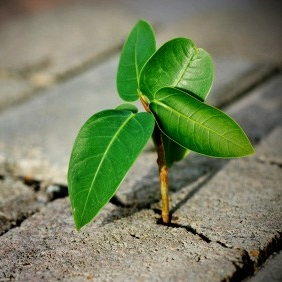
O OUR most holy FATHER,
Our Creator, Redeemer, Consoler, and savior
WHO ART IN HEAVEN:
In the angels and in the saints,
Enlightening them to love, because You, Lord, are light
Inflaming them to love, because You, Lord, are love
Dwelling in them and filling them with happiness,
because You, Lord, are the Supreme Good,
the Eternal Good
from Whom comes all good
without Whom there is no good.
HALLOWED BE THY NAME:
May our knowledge of You become ever clearer
That we may know the breadth of Your blessing
the length of Your promises,
the height of Your majesty,
the depths of Your judgements
YOUR KINGDOM COME:
So that You may rule in us through Your grace
and enable us to come to Your kingdom
where there is an unclouded vison of You
a perfect love of You
a blessed companionship with You
an eternal enjoyment of You.
-Prayer Inspired by the “Our Father”, St. Francis of Assisi, “Franciscan Virtues Through The Year: 52 Steps to Conversion from Saint Francis of Assisi”
As a gardener, I’ve spoken in the blog quite a few times about the importance of trust when planting a seed. The reality of gardening is it’s 33% planning, 33% weeding, 33% execution of a plan, and 100% trust in the process. The seeds get ordered, the plans get drawn out. Once the snow melts, you pull out your boards and lay them down, draw your finger through the soil, plant the seeds, water, weed, and hope. It doesn’t always produce the results you expect, but there are always results.
In my early presence as a gardener I favoured a rigid, ruled approach with clean lines and ease of access between the crops. The next year, I began to explore geometric patterns in the lawn around the pond I had dug. I had an image in my mind of how things would look once I filled the spaces I had dug with perennials, vegetables, annuals, and ornaments. I had a feel for how I was creating the space that I was going to occupy, and the purpose that space was being designed for: food production, contemplation, and relaxation.
Two years ago, I realized that while there was beauty in this, there were clovers and grasses that not only looked beautiful sprouting out of the beds I had planted, but were also better suited for the space that I had thought I knew how to occupy. So last year, while I continued to garden vegetables and plants in the space, I allowed nature to expand in and tell me what the space needed to look like. Rather than take a rigid approach to planning and placing the garden as it’s tender, I threw myself into a co-collaborative experience with the natural world. The result raised some eyebrows from my neighbours who told me on one or more occasion, “You’ve got a really strange way of gardening, Pete!”
But the overall effect in my eyes was beautiful. I let grasses grow and go to seed amidst perennials lilies and flowers. I let clovers overtake the old garden space while planting a dogwood that had been planted in the front flower beds against the house. It looked good there, but it would eventually outgrow the space and make the walk to the front door impassable. It may now have a chance to fill in the space where the old vegetable garden once occupied, as well as providing a visual stop for the eye.
When I allowed the space to rule a little bit, and tended it minimally, the space became the oasis I had hoped it would be. I’d mow the paths in between the beds, but the rest became a wild, untamed respite that enclosed me during the reading of the office through the summer months. It became the cloister I had wanted to create for myself.
Surrender to that process, like surrender to any process, is challenging because it requires trust in people, and in process. If those people and processes are unfamiliar, it’s a challenge; if it’s been a life long struggle to experience trust in any way, it becomes physically and emotionally painful. Never the less, if we are to afford dignity to people it requires that along with courtesy, we afford them the gift of trust.
Then trust is broken, as it happens, because human beings are fallible. We make mistakes, and sometimes those mistakes hurt people we care about.
We have two choices inevitably every moment of our lives: to trust others as to trust in our own selves, or not to. Trust requires that even in the face of what (at the time) may seem to be absolute catastrophe, good will come, everyone will be taken care of, and the learning that will come out of the process will benefit everyone. This does not negate the idea of there being consequence to actions: rather, it affords human beings the dignity to make their own choices, to accept the reality of the consequences they face, we face, and to move through them, gaining experience and wisdom as we do.
In the face of challenge to trust, in the face to embrace the possibility of trust regardless of fear of outcomes, of loosing the control, it is simply a matter of trusting in the beginning that the taking in of a breath will result in the releasing of a breath, and that another will follow. It is a matter of trusting that one heart beat will lead to another.
Most importantly, it is trusting that God has God’s hand on the wheel, stands firmly in the wheel house, and will direct the ship.
Or the shovel. Depending on if you prefer a garden metaphor or not.